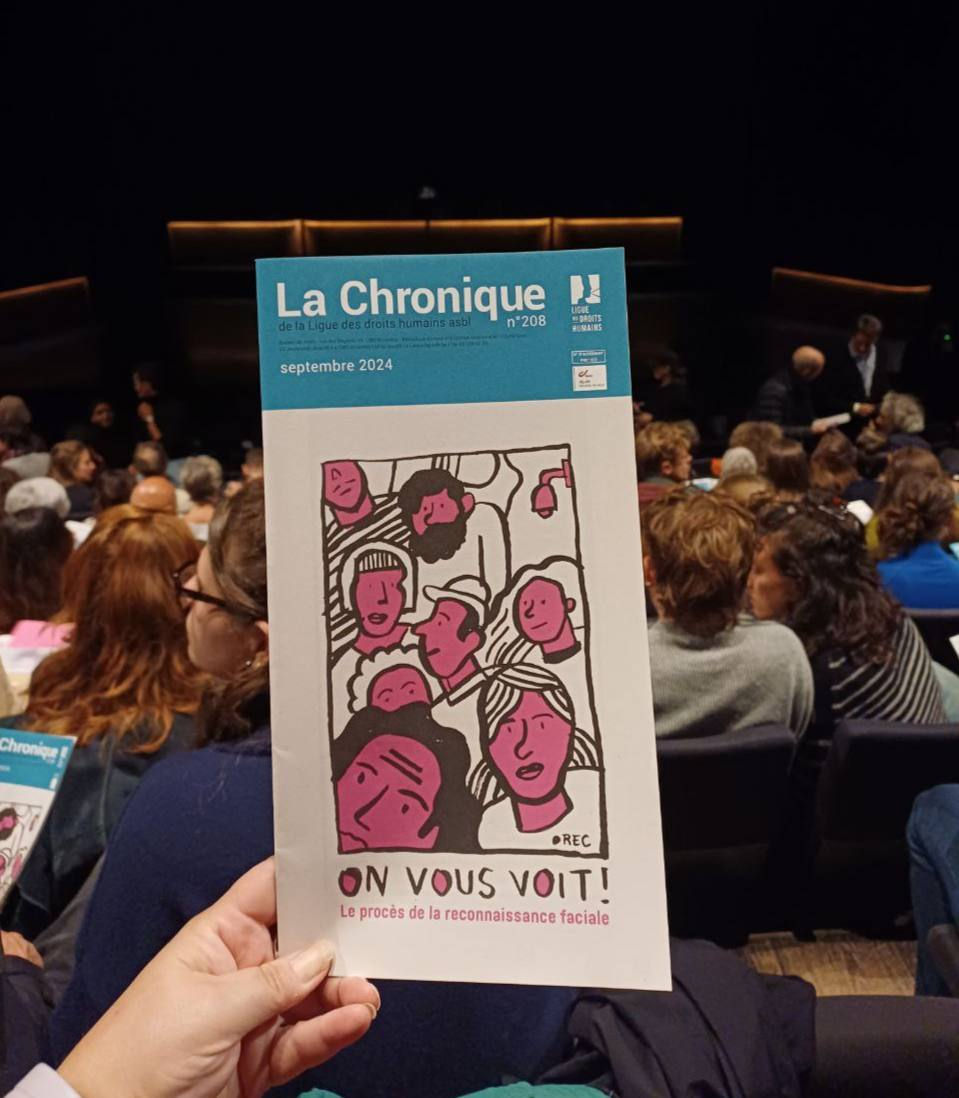Facial recognition for security?
- Nov 6, 2024
- 2 min read
Belgian Ligue des droits humains organized an event about the use of Facial recognition in Belgium.
Over the past decade, I’ve been robbed many times. I've endured break-ins, street harassments, and more. These experiences have forced me to question how safe we truly feel in Brussels, especially with the concerning rise in stabbings and other violent incidents happening.
As a solution, the Belgian government has been considering installing facial recognition systems across the city as a way to combat crime. While this may offer a sense of enhanced security, I can’t help but wonder: at what cost? Do we really want to live in a world where we are constantly monitored? Where privacy shifts from being a basic right to a luxury?
As someone who understands the mechanics of algorithms and the profound impact of emerging technologies, I am acutely aware of the potential risks. When these powerful tools fall into the wrong hands or are used without proper oversight, they can undermine the very principles of liberty and democracy, the core values of the EU. The use of such technology could easily spiral into mass surveillance, eroding personal freedoms and tilting the balance of power in unprecedented ways.
In the EU, our privacy is protected by the GDPR, which ensures that personal data is handled with transparency, fairness, and respect for individual rights. Facial recognition technology falls under its jurisdiction, as it processes biometric data, which is considered sensitive. Any use of this technology must comply with GDPR’s strict rules, including obtaining consent from individuals whose data is being processed, and that individuals have the right to access, correct, or delete their data. But can we really be sure these will be properly enforced? Misuse or hacks could still occur, and the average citizen will not know.
A common argument is, “Well, our smartphones already track us,” and that’s true. Our phones gather enormous amounts of personal data—through facial recognition, location, communications, etc. However, the difference is we can choose what to share, limit features, apps or devices if we’re concerned about privacy. In other words, the crucial element is the freedom of CHOICE.
But what happens when that choice is taken away? As technology becomes increasingly integrated into public and private life, privacy could become an illusion, as constant surveillance becomes normalised.
Eventually, the question isn’t just about how much we trust technology, but how much we value our freedom to choose. With the rise of facial recognition, the decisions we make now will have long-lasting implications for how we live, work, and interact with society in the future.





Comments